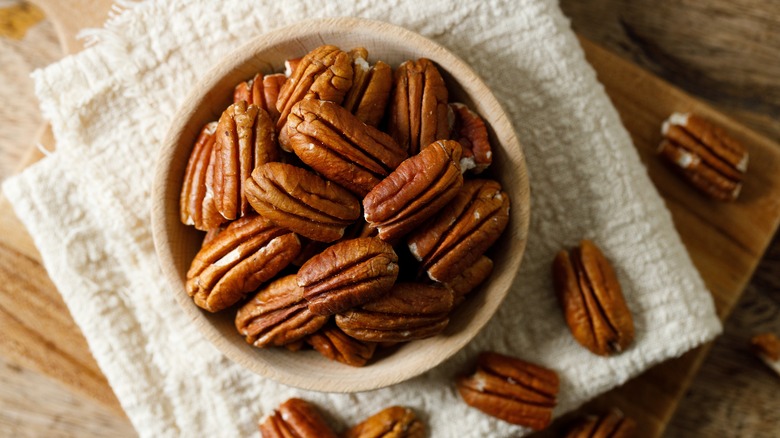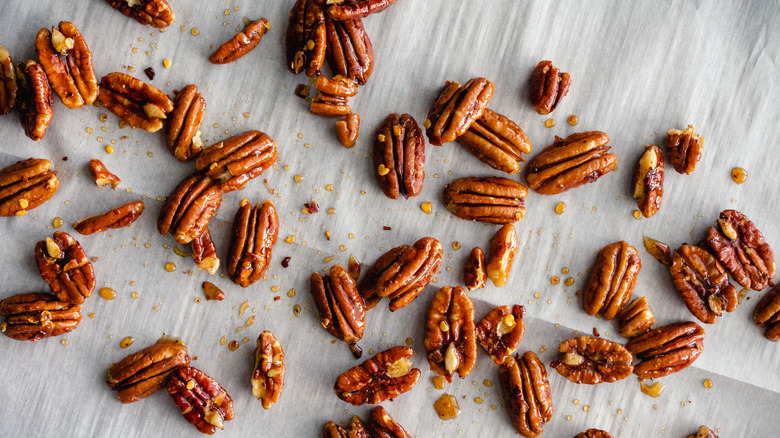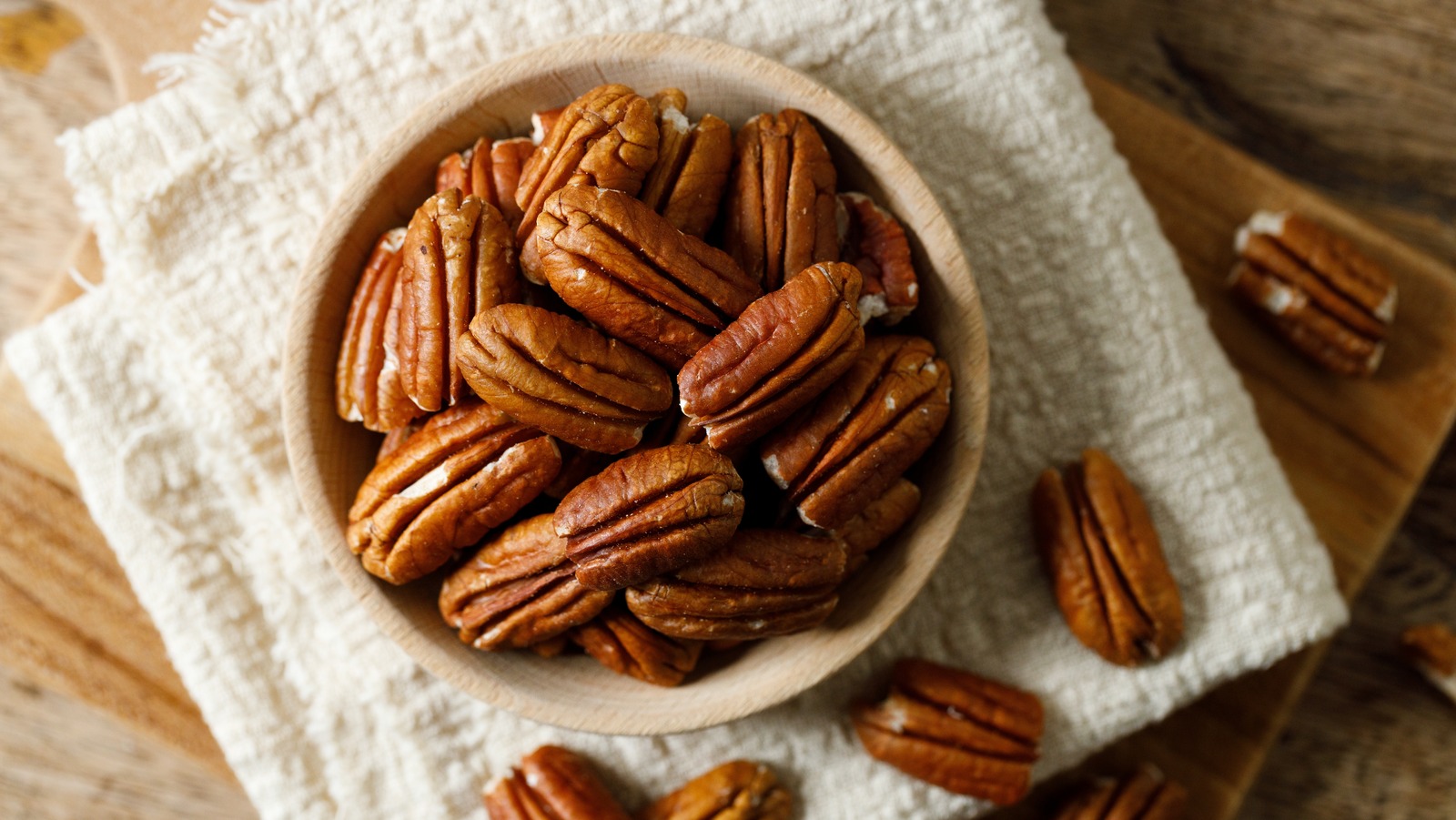
SherSor/Shutterstock
When it comes to food, Alabama gets it right! The famous state is home to the mouthwatering Lane cake, and boasts a 100-year-old restaurant that serves Thanksgiving classics year-round. But Alabama is also widely regarded for its pecans. Pecans are the only major nut tree native to North America, and Alabama ranks as the eighth-largest producer in the country. Most people grab a bag of pecans from the grocery store aisle without thinking twice, but they’re missing one of the state’s best-kept culinary secrets. Those mass-produced nuts sitting on shelves for months cannot compare to what’s happening in Alabama’s 9,000 acres of pecan orchards, where millions worth of premium nuts are harvested fresh each fall.
One of the basic differences between an Alabama pecan and mass-produced varieties begins with genetics. Modern Alabama varieties such as Elliot, Desirable, Gafford, McMillan, and Amling are not just grown in random locations. They are also bred for the soils and conditions in Alabama. This genetic selection produces nuts that possess more flavor and better oil content than generic products shipped from hundreds of miles away. Even more important than taste, these trees are largely scab-resistant and have better crop potential, which means local processors can focus on quality instead of battling disease.
More advantages of Alabama pecans

Candice Bell/Getty Images
Genetics alone does not capture the full quality of Alabama pecans. The other important difference is timing. Companies like Priester’s Pecans shell upwards of two million pounds of pecans a year. The company prioritizes the best nuts: The natural oils are in their prime, the nutmeats retain their creamy, sweet, buttery characteristics, and they stay crispy fresh instead of stale and flat. You might also be surprised to learn that despite all these advantages, the product is not as expensive as you would expect. In fact, buying locally is often more efficient. Alabama pecan producers are only required to pay two to three cents per pound to the USDA for promotion and research funding, which is a minimal amount of overhead compared to national brands that spend millions on marketing.
Moreover, organizations like Sweet Grown Alabama have created a formalized connection to help customers access the freshest pecans available during the Alabama harvest season of October to December. This ensures that consumers purchase pecans at peak ripeness instead of relying on a longer, more complex supply chain. Purchasing Alabama pecans means you are getting nuts that were literally on the tree just weeks ago, not nuts that have spent time in warehouses developing off-flavors and losing nutritional value. This is not just about supporting local agriculture; it is about having access to superior ingredients that will elevate your experience in the kitchen, whether you’re making homemade candied pecans or a Thanksgiving pecan pie for the family.

